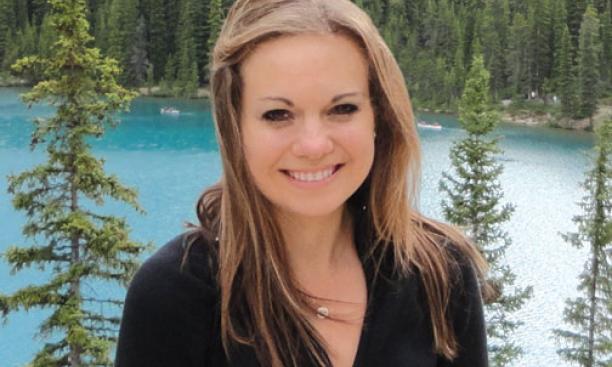

When she was 16, Jessica Melore ’03 suffered a massive heart attack. Her doctors thought she might not live through the night, and last rites were delivered. She did survive, but she needed a new heart and waited nine long months for a donation. An implanted battery-operated device kept her alive in the meantime.
Though she received a new heart — from an 18-year-old girl who died in a car accident — Melore realized what a shortage of organs there was.
“I remember seeing all the people in the hospital who were waiting months upon months and sometimes not receiving an organ in time, or by the time they received an organ, dying from complications because they had waited so long,” says Melore.
Melore has made a career of raising awareness of the need for organ donors through her work at the New Jersey Organ and Tissue Sharing Network (known as the NJ Sharing Network) and the national organization Donate Life America. After she joined the New Jersey nonprofit in 2004, she worked for three years on a grant to study and develop ways to promote organ donation in the workplace. Then she became the organization’s senior education and programs manager.
She oversees NJ Sharing Network’s relationship with state agencies and other groups to promote and educate people about donation, including the N.J. Motor Vehicle Commission, the Legacy of Heroes program (which aims to get firefighters, police officers, and other first responders to sign up as donors and spread the word in their communities), colleges and high schools, hospitals, and religious communities. She also helped launch New Jersey’s first online donor registry.
Melore sees her work as honoring those people who died before they could receive a transplant. “I felt this calling to speak on their behalf, and also for the thousands waiting for a call that might never come. I want to do something for them because I don’t take my life for granted, and I realized how easily it could be taken from me.”
On her 30th birthday — Jan. 4, 2012 — a video of Melore telling her story kicked off a yearlong Donate Life America campaign that aims to sign up 20 million new organ and tissue donors in 2012. (April is National Donate Life Month.)
Named one of 12 inspiring women of 2012 by Donate Life America, Melore helped organize the first National Donate Life Blue and Green Day on April 20 — in which people were to wear blue and green and host events in support of donation.
Since 2006 the percentage of New Jersey residents 18 years old and older who have registered as donors has grown from 17 percent to 32 percent.
People often don’t realize how the donation of an organ affects donor families, says Melore. “They think about [donation] in terms of loss, but donation offers these families such an incredible sense of comfort, knowing that their loved one is able to live on in some way,” says Melore, who has met the mother of her donor. “It’s not just a tragic end. Their legacy continues through the lives of others.”
For information on donation, go to www.donatelifeamerica.org.
